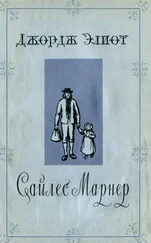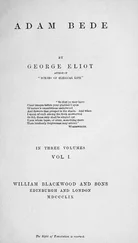Джордж Элиот - Brother Jacob
Здесь есть возможность читать онлайн «Джордж Элиот - Brother Jacob» — ознакомительный отрывок электронной книги совершенно бесплатно, а после прочтения отрывка купить полную версию. В некоторых случаях можно слушать аудио, скачать через торрент в формате fb2 и присутствует краткое содержание. Жанр: foreign_prose, literature_19, foreign_antique, на английском языке. Описание произведения, (предисловие) а так же отзывы посетителей доступны на портале библиотеки ЛибКат.
- Название:Brother Jacob
- Автор:
- Жанр:
- Год:неизвестен
- ISBN:нет данных
- Рейтинг книги:5 / 5. Голосов: 1
-
Избранное:Добавить в избранное
- Отзывы:
-
Ваша оценка:
- 100
- 1
- 2
- 3
- 4
- 5
Brother Jacob: краткое содержание, описание и аннотация
Предлагаем к чтению аннотацию, описание, краткое содержание или предисловие (зависит от того, что написал сам автор книги «Brother Jacob»). Если вы не нашли необходимую информацию о книге — напишите в комментариях, мы постараемся отыскать её.
Brother Jacob — читать онлайн ознакомительный отрывок
Ниже представлен текст книги, разбитый по страницам. Система сохранения места последней прочитанной страницы, позволяет с удобством читать онлайн бесплатно книгу «Brother Jacob», без необходимости каждый раз заново искать на чём Вы остановились. Поставьте закладку, и сможете в любой момент перейти на страницу, на которой закончили чтение.
Интервал:
Закладка:
First, he spoke freely of his intention to start shortly for Liverpool and take ship for America; a resolution which cost his good mother some pain, for, after Jacob the idiot, there was not one of her sons to whom her heart clung more than to her youngest-born, David. Next, it appeared to him that Sunday afternoon, when everybody was gone to church except Jacob and the cowboy, was so singularly favourable an opportunity for sons who wanted to appropriate their mothers’ guineas, that he half thought it must have been kindly intended by Providence for such purposes. Especially the third Sunday in Lent; because Jacob had been out on one of his occasional wanderings for the last two days; and David, being a timid young man, had a considerable dread and hatred of Jacob, as of a large personage who went about habitually with a pitchfork in his hand.
Nothing could be easier, then, than for David on this Sunday afternoon to decline going to church, on the ground that he was going to tea at Mr. Lunn’s, whose pretty daughter Sally had been an early flame of his, and, when the church-goers were at a safe distance, to abstract the guineas from their wooden box and slip them into a small canvas bag—nothing easier than to call to the cowboy that he was going, and tell him to keep an eye on the house for fear of Sunday tramps. David thought it would be easy, too, to get to a small thicket and bury his bag in a hole he had already made and covered up under the roots of an old hollow ash, and he had, in fact, found the hole without a moment’s difficulty, had uncovered it, and was about gently to drop the bag into it, when the sound of a large body rustling towards him with something like a bellow was such a surprise to David, who, as a gentleman gifted with much contrivance, was naturally only prepared for what he expected, that instead of dropping the bag gently he let it fall so as to make it untwist and vomit forth the shining guineas. In the same moment he looked up and saw his dear brother Jacob close upon him, holding the pitchfork so that the bright smooth prongs were a yard in advance of his own body, and about a foot off David’s. (A learned friend, to whom I once narrated this history, observed that it was David’s guilt which made these prongs formidable, and that the “mens nil conscia sibi” strips a pitchfork of all terrors. I thought this idea so valuable, that I obtained his leave to use it on condition of suppressing his name.) Nevertheless, David did not entirely lose his presence of mind; for in that case he would have sunk on the earth or started backward; whereas he kept his ground and smiled at Jacob, who nodded his head up and down, and said, “Hoich, Zavy!” in a painfully equivocal manner. David’s heart was beating audibly, and if he had had any lips they would have been pale; but his mental activity, instead of being paralysed, was stimulated. While he was inwardly praying (he always prayed when he was much frightened)—“Oh, save me this once, and I’ll never get into danger again!”—he was thrusting his hand into his pocket in search of a box of yellow lozenges, which he had brought with him from Brigford among other delicacies of the same portable kind, as a means of conciliating proud beauty, and more particularly the beauty of Miss Sarah Lunn. Not one of these delicacies had he ever offered to poor Jacob, for David was not a young man to waste his jujubes and barley-sugar in giving pleasure to people from whom he expected nothing. But an idiot with equivocal intentions and a pitchfork is as well worth flattering and cajoling as if he were Louis Napoleon. So David, with a promptitude equal to the occasion, drew out his box of yellow lozenges, lifted the lid, and performed a pantomime with his mouth and fingers, which was meant to imply that he was delighted to see his dear brother Jacob, and seized the opportunity of making him a small present, which he would find particularly agreeable to the taste. Jacob, you understand, was not an intense idiot, but within a certain limited range knew how to choose the good and reject the evil: he took one lozenge, by way of test, and sucked it as if he had been a philosopher; then, in as great an ecstacy at its new and complex savour as Caliban at the taste of Trinculo’s wine, chuckled and stroked this suddenly beneficent brother, and held out his hand for more; for, except in fits of anger, Jacob was not ferocious or needlessly predatory. David’s courage half returned, and he left off praying; pouring a dozen lozenges into Jacob’s palm, and trying to look very fond of him. He congratulated himself that he had formed the plan of going to see Miss Sally Lunn this afternoon, and that, as a consequence, he had brought with him these propitiatory delicacies: he was certainly a lucky fellow; indeed, it was always likely Providence should be fonder of him than of other apprentices, and since he was to be interrupted, why, an idiot was preferable to any other sort of witness. For the first time in his life, David thought he saw the advantage of idiots.
As for Jacob, he had thrust his pitchfork into the ground, and had thrown himself down beside it, in thorough abandonment to the unprecedented pleasure of having five lozenges in his mouth at once, blinking meanwhile, and making inarticulate sounds of gustative content. He had not yet given any sign of noticing the guineas, but in seating himself he had laid his broad right hand on them, and unconsciously kept it in that position, absorbed in the sensations of his palate. If he could only be kept so occupied with the lozenges as not to see the guineas before David could manage to cover them! That was David’s best hope of safety; for Jacob knew his mother’s guineas; it had been part of their common experience as boys to be allowed to look at these handsome coins, and rattle them in their box on high days and holidays, and among all Jacob’s narrow experiences as to money, this was likely to be the most memorable.
“Here, Jacob,” said David, in an insinuating tone, handing the box to him, “I’ll give ’em all to you. Run!—make haste!—else somebody’ll come and take ’em.”
David, not having studied the psychology of idiots, was not aware that they are not to be wrought upon by imaginative fears. Jacob took the box with his left hand, but saw no necessity for running away. Was ever a promising young man wishing to lay the foundation of his fortune by appropriating his mother’s guineas obstructed by such a day-mare as this? But the moment must come when Jacob would move his right hand to draw off the lid of the tin box, and then David would sweep the guineas into the hole with the utmost address and swiftness, and immediately seat himself upon them. Ah, no! It’s of no use to have foresight when you are dealing with an idiot: he is not to be calculated upon. Jacob’s right hand was given to vague clutching and throwing; it suddenly clutched the guineas as if they had been so many pebbles, and was raised in an attitude which promised to scatter them like seed over a distant bramble, when, from some prompting or other—probably of an unwonted sensation—it paused, descended to Jacob’s knee, and opened slowly under the inspection of Jacob’s dull eyes. David began to pray again, but immediately desisted—another resource having occurred to him.
“Mother! zinnies!” exclaimed the innocent Jacob. Then, looking at David, he said, interrogatively, “Box?”
“Hush! hush!” said David, summoning all his ingenuity in this severe strait. “See, Jacob!” He took the tin box from his brother’s hand, and emptied it of the lozenges, returning half of them to Jacob, but secretly keeping the rest in his own hand. Then he held out the empty box, and said, “Here’s the box, Jacob! The box for the guineas!” gently sweeping them from Jacob’s palm into the box.
Читать дальшеИнтервал:
Закладка:
Похожие книги на «Brother Jacob»
Представляем Вашему вниманию похожие книги на «Brother Jacob» списком для выбора. Мы отобрали схожую по названию и смыслу литературу в надежде предоставить читателям больше вариантов отыскать новые, интересные, ещё непрочитанные произведения.
Обсуждение, отзывы о книге «Brother Jacob» и просто собственные мнения читателей. Оставьте ваши комментарии, напишите, что Вы думаете о произведении, его смысле или главных героях. Укажите что конкретно понравилось, а что нет, и почему Вы так считаете.











